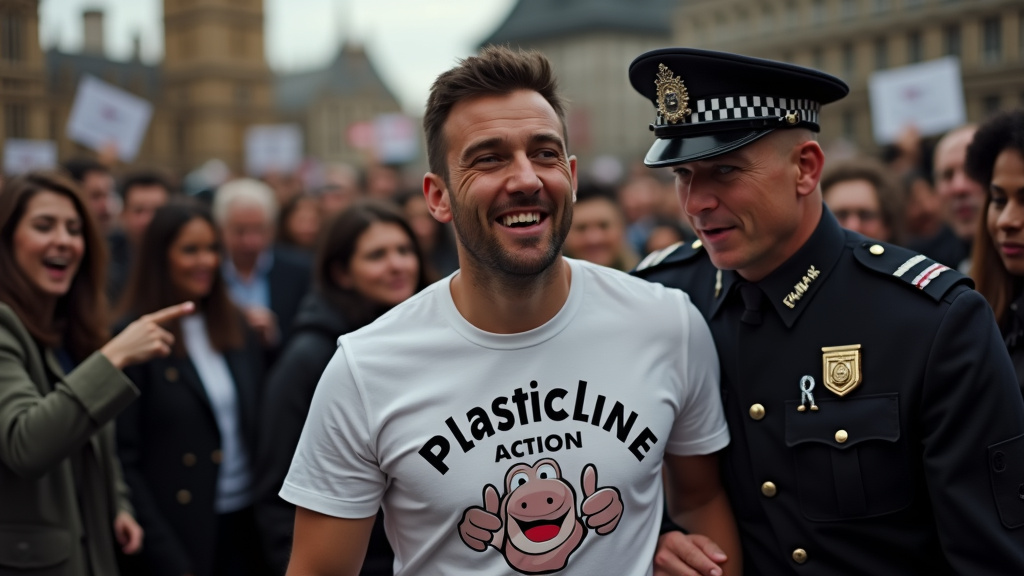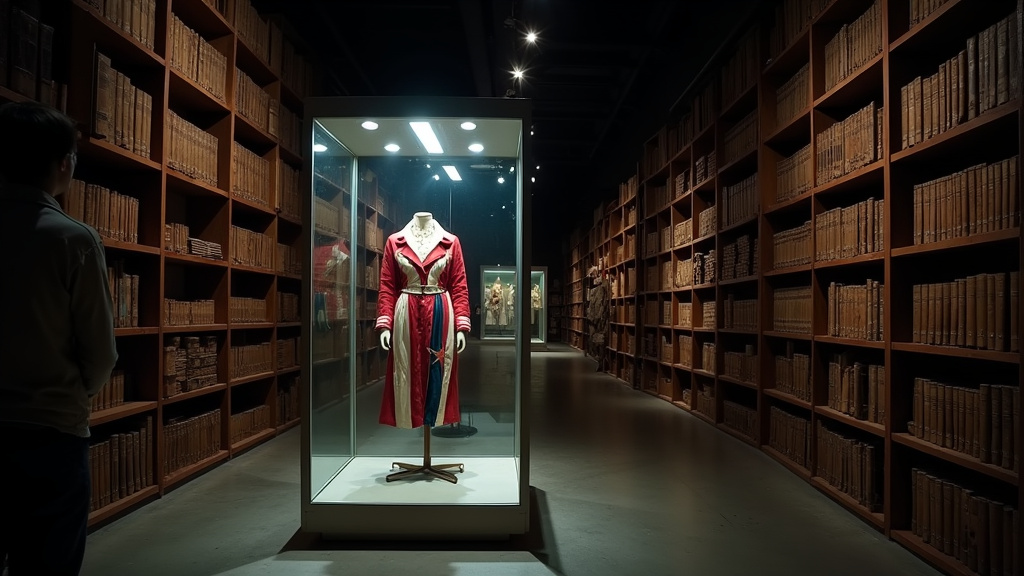A seemingly absurd arrest in London involving a ‘Plasticine Action’ T-shirt has unexpectedly thrust the contentious issue of protest rights and free speech into the global spotlight, quickly becoming a trending topic across social media and news outlets. Miles Pickering, a Brighton engineer, was briefly detained at a protest in Parliament Square for wearing a satirical T-shirt, an incident he described as so preposterous that it drew laughter from onlookers. This event underscores the growing tension between state efforts to manage public demonstrations and citizens’ rights to express dissent, particularly in the wake of the recent proscription of the activist group Palestine Action.
The Arrest That Sparked Laughter
The incident unfolded on August 9, 2025, amidst a large demonstration in London protesting the ban on Palestine Action. Miles Pickering, attending the protest, donned a T-shirt designed to resemble the logo of Palestine Action, but with a crucial, satirical twist: it read ‘Plasticine Action’ and featured an image of the beloved stop-motion character Morph giving two thumbs up. Beneath the main text, the shirt declared: ‘We oppose AI-generated animation.’
A police officer, apparently mistaking the parody for genuine support of a proscribed organization, arrested Pickering under Section 13 of the Terrorism Act 2000, which criminalizes displaying items indicating support for such groups. Pickering recounted the scene, noting the palpable sense of amusement among the crowd as he was led away, with many laughing at the ‘silliness’ of his arrest for being a ‘plasticine terrorist.’
Upon arrival at Scotland Yard, the irony of the situation became clear to senior officers. When asked if Pickering could face a more serious charge under Section 12, the arresting officer reportedly confirmed he could not, precisely because the shirt read ‘Plasticine Action,’ not ‘Palestine Action.’ Within minutes, Pickering was de-arrested, the officer acknowledging the ’embarrassment’ of the blunder.
The Broader Context: Palestine Action’s Proscription
Pickering’s arrest is emblematic of a wider society debate following the UK government’s decision to proscribe Palestine Action. Founded in 2020, Palestine Action is a direct-action network aimed at disrupting the British arms industry, which it accuses of complicity in the Gaza conflict. The group employs disruptive tactics, including occupying premises, damaging property, and vandalism, primarily targeting facilities of Israeli weapons manufacturer Elbit Systems and RAF Brize Norton. While the group describes its actions as ‘non-violent yet disruptive’ and states it has never harmed individuals, its activities led to significant damage, notably an estimated £7 million in vandalism to RAF aircraft at Brize Norton.
On July 5, 2025, the British government officially banned Palestine Action under the Terrorism Act 2000, making it the first time a direct-action protest group has been designated as a terrorist organization in the UK. This proscription means that membership, fundraising, or even displaying items interpreted as support for the group can lead to severe penalties, including up to 14 years in prison.
Critiques of the Ban and Implications for Protest Culture
The government’s ban on Palestine Action has drawn significant criticism from civil liberties groups, legal experts, UN officials, and human rights organizations like Amnesty International and Greenpeace. Critics argue that the move ‘conflates protest with terrorism’ and constitutes a ‘disturbing legal overreach’ that risks chilling legitimate free speech and the fundamental right to protest.
Indeed, the protest on August 9 where Pickering was arrested saw over 530 detentions, with more than half of those arrested being aged 60 or above, mostly for displaying supportive placards. Since the ban, over 700 individuals have been arrested for expressing solidarity with Palestine Action. Palestine Action itself has been granted permission for a judicial review of its proscription, raising further questions about the legality and proportionality of the ban.
The Aftermath and Future of Satirical Protest
Miles Pickering’s comical arrest, widely shared as breaking news, has inadvertently turned his ‘Plasticine Action’ T-shirt into a symbol of satirical defiance against perceived overreach. He is now selling copies of the T-shirt, with all profits going to Medical Aid for Palestinians. The shirt has garnered significant attention, selling in numerous countries and becoming a popular item online. Pickering remains undeterred, suggesting he expects to see more ‘Plasticine Action’ shirts at future demonstrations, challenging authorities on how they will respond if a thousand people adopt this form of protest.
This incident highlights a critical juncture in the culture of protest in the UK. The fine line between legitimate dissent and proscribed support is being fiercely debated, and the ‘Plasticine Action’ arrest serves as a potent, if humorous, reminder of the complexities and potential absurdities arising from stringent new protest laws.





